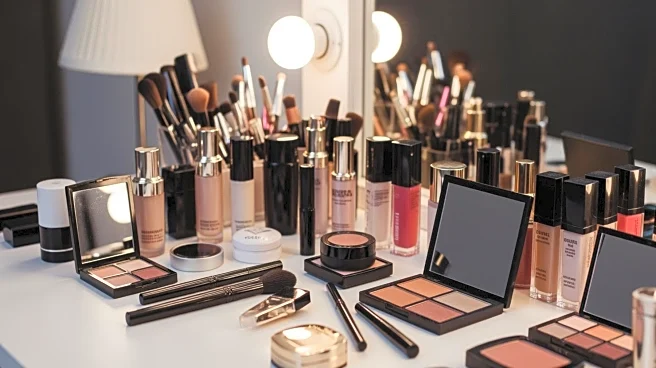What's Happening?
Huda Beauty, founded by Huda Kattan, has been identified as one of the most influential indie beauty brands in 2025, according to a report by influencer marketing insights firm Traackr. The report highlights that indie beauty brands now hold 20.4% of the market share,
an increase from 19.1% in the first half of 2024. Traackr attributes the success of these smaller independent businesses to their ability to form sharper relationships, engage in lighter paid marketing, adapt quickly to cultural shifts, and make first-mover bets on new platforms. The report suggests that while large portfolios continue to dominate in terms of scale, indie brands are proving that efficiency and relevance can compete with sheer size.
Why It's Important?
The recognition of Huda Beauty as a leading indie brand underscores a significant shift in the beauty industry, where smaller brands are gaining ground against larger, established companies. This trend reflects changing consumer preferences towards brands that offer personalized experiences and innovative products. The growth of indie brands could lead to increased competition, driving innovation and potentially lowering prices for consumers. Additionally, the success of these brands may encourage more entrepreneurs to enter the beauty market, further diversifying the industry and offering consumers a wider range of choices.
What's Next?
As indie beauty brands continue to grow, larger companies may need to adapt their strategies to maintain market share. This could involve investing in more personalized marketing approaches, expanding product lines to include niche offerings, or acquiring successful indie brands to enhance their portfolios. The ongoing evolution of consumer preferences towards indie brands may also influence retail strategies, with stores potentially increasing shelf space for these products. Furthermore, the rise of indie brands could lead to more collaborations and partnerships within the industry, fostering innovation and growth.
Beyond the Headlines
The rise of indie beauty brands highlights broader cultural shifts towards authenticity and diversity in consumer products. As these brands often emphasize unique identities and inclusive marketing, they contribute to a more diverse representation within the beauty industry. This trend may also influence other sectors, encouraging companies to prioritize consumer engagement and cultural relevance. Additionally, the success of indie brands could inspire changes in business models, with a focus on agility and responsiveness to market trends.
















